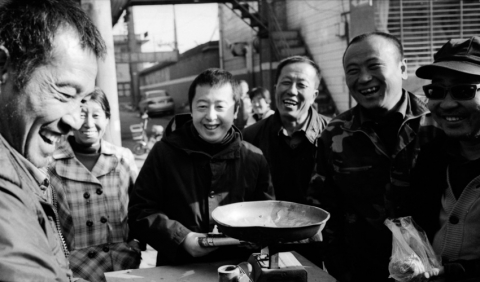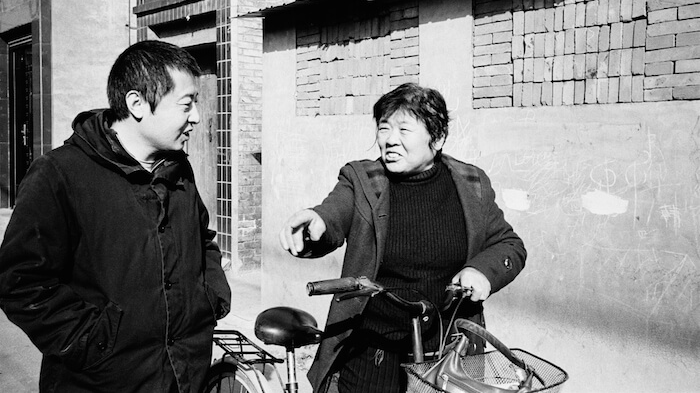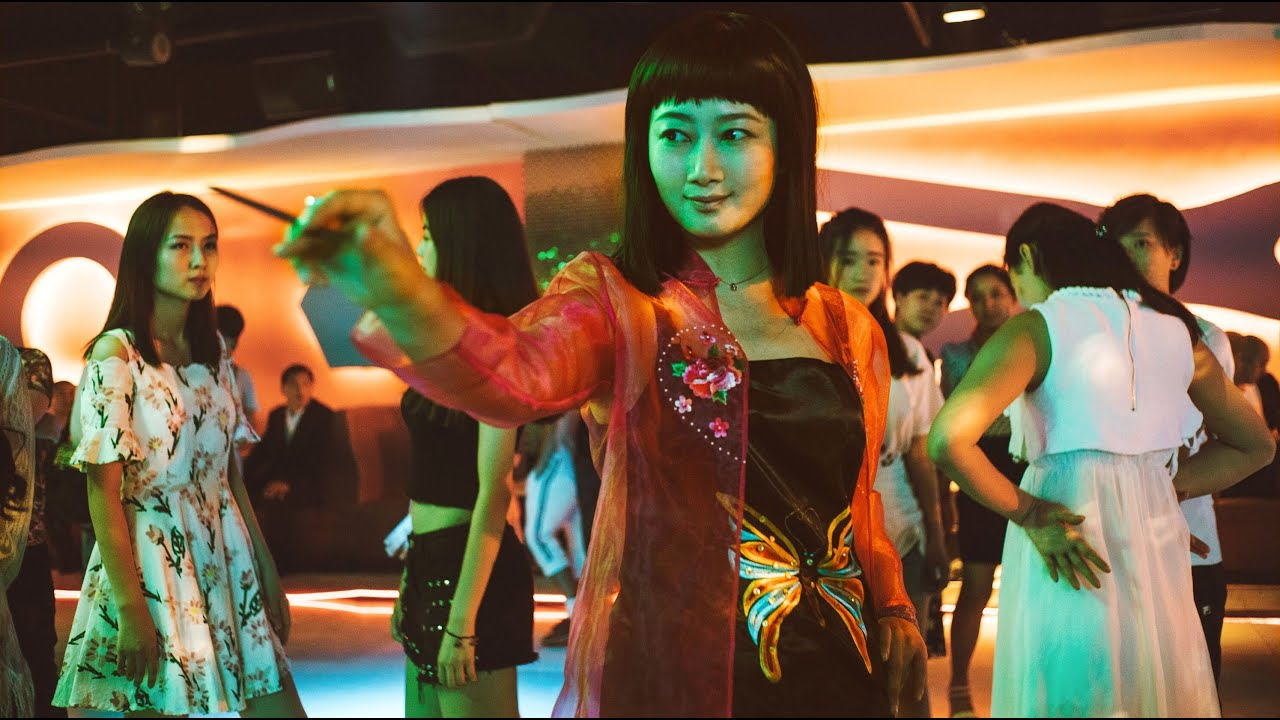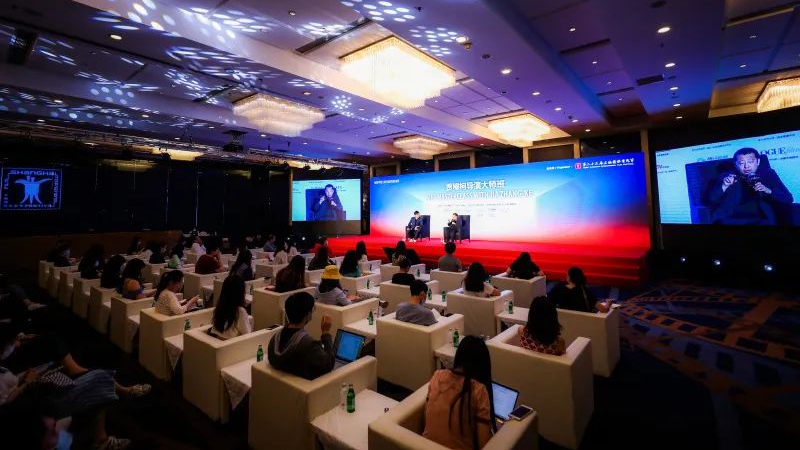On the first day of the 23rd Shanghai International Film Festival (SIFF), the "Masterclass" welcomed its guest Jia Zhangke, an award-winning director, producer and writer. He traveled from his rural hometown Fenyang to the international metropolis Shanghai, to share reflections on his life, work and creative process with industry insiders and movie fans.

SIFF Masterclass with Jia Zhangke. /SIFF
SIFF Masterclass with Jia Zhangke. /SIFF
To see a world in a grain of sand
Jia Zhangke is a unique part of China's film industry. Aesthetically inclined, he is considered too artsy and inconsiderate by many. But being a true film auteur, for Jia, movies should be about individuals' reaction to life and their reflection of it. This blatant honesty in his films has gained increased attention over the years, and Jia's way of showing the meaning of life through cruel and crude fragments has become a highly recognized style.
Being at home in his hometown during the pandemic, Jia looked, felt and wrote. His thoughts and realizations were promised to be found in his future works. "I do value the audience a great deal, it's just that my angle is different. Most movies hope to tell a story to the audience. For me, I want the audience to live a life through my movie, to have an immersive experience."

Jia Zhangke in a documentary about him called "Jia Zhangke, A Guy from Fenyang", directed by Walter Salles. /Kino Lorber photo
Jia Zhangke in a documentary about him called "Jia Zhangke, A Guy from Fenyang", directed by Walter Salles. /Kino Lorber photo
Jia's rural hometown Fenyang, in its own unique way, has been ever feeding his inspiration. Chinese country life is a recurring theme in his films and the area's local accent, scenery and livelihood has earned repeated appearances. During this pandemic, Fenyang became the "Peach Garden" for Jia. The life of tilling lands and popping corns traditional Chinese style has attracted the envy of many netizens.
For Jia, standing on the soil of his hometown gave him more than just a break from his usual busy work life, but also insight into his motherland – China. "China is of such strength, and that has a lot to do with our vast countrysides. Their strategic importance shows when global crisis hits, when society shakes.”

A scene from "Jia Zhangke, A Guy from Fenyang". /Kino Lorber photo
A scene from "Jia Zhangke, A Guy from Fenyang". /Kino Lorber photo
Global epidemic in a 3-minute short film
Jia was not completely taken away from work during the virus outbreak. He was invited by the Thessaloniki International Film Festival in Greece to create a short film with the COVID-19 epidemic as the background. A 3-minute short film named "The Visitor" was the fruit of this project.

Jia Zhangke in his 3-minute short film "The Visitor".
Jia Zhangke in his 3-minute short film "The Visitor".
Confined spaces and limited resources were never deal breakers for this particular director.
Details light sparks in Jia's brain. He always has enormous interest in people's most ordinary day-to-day lives, and often draws inspirations from needles and threads. Not collecting this type of footage during the 2003 SARS outbreak was a deep regret for Jia. He believes tragedies of that size and scale, tragedies that could reshape humankind, should have been adequately recorded. So this time, he was not going to miss another chance.

A scene in "The Visitor" directed by Jia Zhangke.
A scene in "The Visitor" directed by Jia Zhangke.
One day, one iPhone and three other people were how much it took for Jia to finish his short film. He liked the idea behind this project and he said what he wanted to say through the camera. "Movie makers keep making good movies, and people will go back to cinemas to watch movies," said Jia. "Sitting shoulder by shoulder is one of the most beautiful position humans could put themselves in.”
To make 'films'
Jia never underestimated the nitty gritty of life or looked down on raw emotions. During this pandemic Jia's sense for details has strengthened and so has his thought process. Rethinking our ways of living and rethinking what we considered to be normal and logical was what Jia did. He encourages young film makers to do the same, for a deeper understanding of humans fragility drives people to cherish things they take for granted in times of prosperity.
"I believe after this pandemic, film makers are able to make movies that are more like movies, namely films that are more appropriate to put on big screens. After over 100 movie-free days, our respective of this media has changed. We ought to understand how to utilize this media – what is the beauty of cinemas, what are the aesthetics of cinemas."

A scene from Jia Zhangke's film "Ash Is Purest White".
A scene from Jia Zhangke's film "Ash Is Purest White".
The pandemic impacted our lives in ways we could not have imagined. Jia is convinced that audiences and movie fans will have new requirements for films, a stronger desire to see new things in films and will want their inner feelings to be more accurately echoed. "Going to the cinema provides a sense of ceremony, while streaming does something else. They both serve the pleasure of the audience quite well."

The Masterclass in session - Jia Zhangke sharing his thoughts and feeling with the audience. /SIFF photo
The Masterclass in session - Jia Zhangke sharing his thoughts and feeling with the audience. /SIFF photo
To be film 'makers'
Jia likes the phrase "film maker" because it has a sense of labor in it – effort is implied. For him, film makers build scripts word by word, choose actors face by face, select scenes place by place. They sit, muse, then shoot. They finish films by putting it together clip by clip.
"Don't forget we are working men. Don't get blinded by honors, and forget that we are workers, we are film 'makers.' Don't lose passion for your work.”
Jia acknowledges that for struggling young directors working in this competitive industry, getting recognition and praise costs time, but that is the reality for young people of every generation. "Let love conquer all," advised by Jia, who made it by loving what he does and never forgetting where he comes from.
The 23rd Shanghai International Film Festival
Jia gave high praise for the festival, not just for its inherent reputation, but how it handled such an event amid the pandemic. He pointed out that the success of this festival is evidence that China's prevention and control mechanism is effective and efficient. He also expressed his admiration for people working in and for the Chinese film industry.
"It shows our strength, our professionalism. The smooth running of this festival is the combined effort of all staff members. Chinese film makers can get better together. Great films are what they are going to make.”